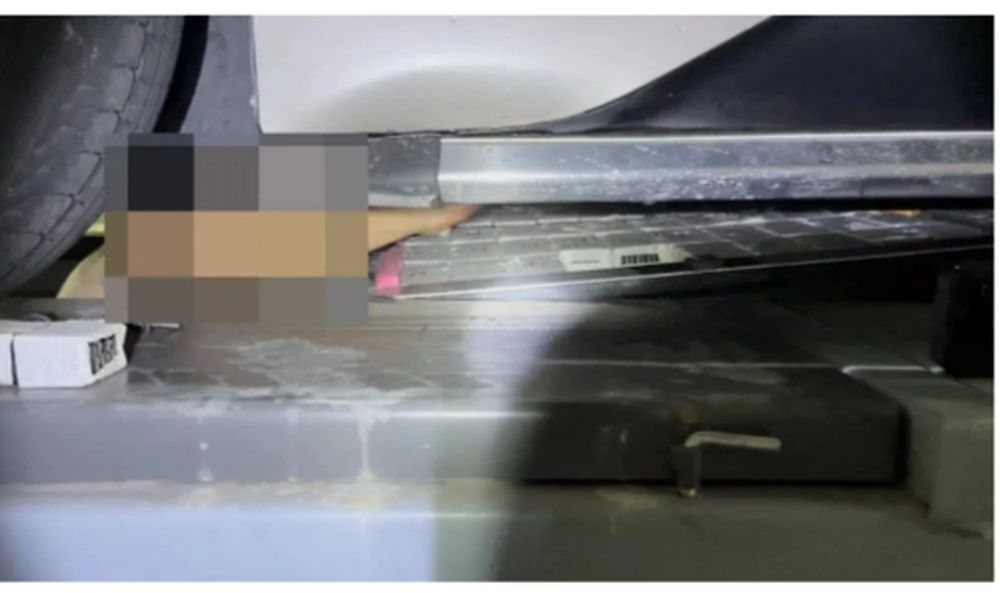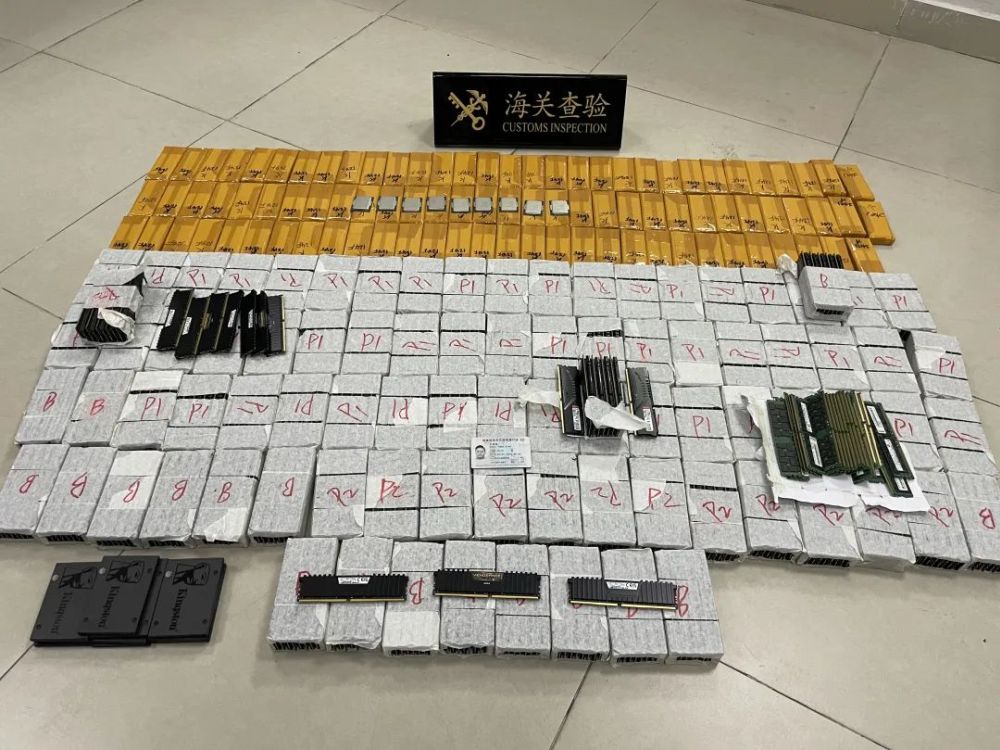At the end of July this year, Chinese customs at the Hong Kong-Zhuhai-Macao border thwarted a smuggling attempt. All in all, the smugglers had attempted to sneak a total of 1,747 components across the border, and into the mainland.
To break that number down, the smuggling attempt comprised 836 CPUs, 900 memory sticks, and 10 SSDs. Based on the images posted on ITHomes, we can see that the memory sticks were primarily from the US brand Corsair, while the SSDs were from Kingston.

The smugglers had attempted to get the components through the border by hiding the goods inside a cleverly hidden compartment, hidden in the undercarriage of the bus. As with all smuggling attempts in the past, the smugglers clearly didn’t take into consideration the one tool that all customs officers around the world have in their arsenal: the humble X-ray scanner. That, or they simply thought that they could fool the system.
Naturally, with the smuggling attempt foiled, both the goods and the bus were confiscated and the driver of the bus, presumably, was arrested.
Once again, this isn’t the first time tales of failed and foiled smuggling attempts have emerged from the Guandong-Macao border. In April, a man attempted to smuggle a ton of electronic goods worth US$3.8 million (~RM17.32 million) from Hong Kong into the mainland by trying to hide them inside 30 crates. Simply labelled as electronic displays.

Back in March this year, Chinese customs stopped another attempt, whereby the smuggler tried to sneak 84 SSDs across by putting them inside the hollow of their electric scooter. But perhaps the most daring, brazen attempt at smuggling electronic goods across the border was the smuggler who hid over 200 Intel CPUs inside a pregnant belly prosthetic.
It’s not hard to understand why smugglers still continue to risk jail time for ill-gotten profits either. The tax rate of electronic goods in areas such as Hong Kong and Macao is lower than that in Mainland China. For that matter, these bungled smuggling cases are considered as some of the more extreme cases of cross-border exploitation, so it really makes you wonder just how many successful attempts actually go through.
There’s also the ongoing economic war between the US and China, where the former economic powerhouse has tighten restrictions of semiconductor chips and materials to the latter, in an effort to stymie the latter’s technological advancement of its military.
(Source: ITHome via Videocardz)
Follow us on Instagram, Facebook, Twitter or Telegram for more updates and breaking news.



